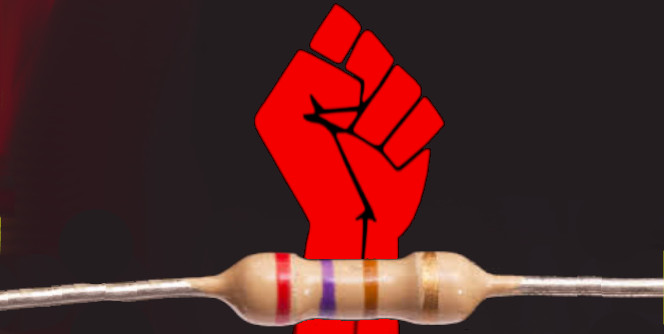Eritrean Opposition Party Transforms and Renamed HADI

Last week, the former Eritrean Islamic Party for Justice and Development (EIPJD), one of the largest Eritrean opposition organizations, held its congress and made major changes in its program, and elected a new leadership.
In a statement it issued on October 19, 2019, the party dropped the “Islamic” term from its name and renamed itself the “Eritrean Nation’s Democratic Party”. It also elected Dr. Ahmed Saleh as its leader.
The ENDP declared the following positions:
- That it transformed itself into an open political party that accommodated all Eritreans.
- That it will pursue its goal through peaceful means.
- That it has changed its name to the Eritrean Nation’s Democratic Party—(Hzb Alweten al Dimokrati Al Eritry in Arabic (acronym: HADI).
The congress appreciated the combined Eritrean effort that led to holding the last congress of the Eritrean National Council for Democratic Change (ENCDC), “emphasizing the need for its continuation to pursue its goals.” It also called on all civic associations and popular movements inside Eritrea and in the diaspora to “escalate the struggle against the dictatorial regime in Eritrea.”
The HADI congress also lauded the development in the Horn of Africa, “including the peace [between Ethiopia and] Eritrea hoping the two countries would finalize the demarcation of their boundary.” It also applauded the “Sudanese peaceful revolution” which it said, “is an inspiration for the pursuit of change in our region.”
Finally, the congress called on the “regional powers and the international community interested in peace and stability in the [Horn of Africa] region to pressure the people and governments to [enter into] a dialogue in order to end the conflicts and uneasiness between themselves.”
It concluded by called on the International community to force Israel to abide by international declarations to enable the Palestinians to establish their rightful nation in the occupied lands, the return of its refugees in order to guarantee peace and stability in the entire region.
Several members of HADI from around the world attended the congress which was held in an undisclosed location.
Genesis of the Eritrea Islamist Movements
The Eritrean Islamic Movement (EIM) started in Sudan by Eritrean students in the 1970s as a secretive organization—one of the reasons of its launch was the imprisonment of prominent combatants and politicians in the Eritrean Liberation Front (ELF).
Both struggle era Eritrean organizations, the ELF and the Eritrean Peoples’ Liberation Front (EPLF, the precursor of the PFDJ, the current ruling party of Eritrea) were socialist oriented organizations and openly oppressed religious people.
In the late 1970s, the ELF released some prisoners, including Sheikh Mohammed Ismail Abdu, Shiekh Hamid Saleh Turki, and others. Soon, they joined hands with the EIM and formed the Munezemet Al Ruwad al Muslemeen al Eritry (Organization of Eritrean Muslim Pioneers). In the early 1980s the newly formed organization issued its first statement called “Beyan al Khubz wesselam” (the Bread and Peace Statement) in Sudan. The statement became the call that attracted many Eritreans who joined the organization in droves.
The Islamist organizations were initially supported by many Eritreans in reaction to what many Muslims considered a violation and suppression of religious rights within both the the ELF and EPLF–the two struggle-era organizations were left-oriented and had little tolerance for believers. Soon, the Muslim protest developed into a full-fledged Islamist movement, and the Jihadist strains were born.
The Islamist movements were sustained by the anger of believers and were further emboldened by the regional situation to escalate their activities in military confrontation. In time, the sporadic violent confrontations pulled in the Sudan which was under the Islamist rule of the now-deposed president Omar Al Bashir and the late Dr. Hassen Al Turabi. By the mid-1990s, the Eritrean regime hosted and trained many Sudanese opposition factions who were pulled into the conflict. At one time, the Eritrean and Sudanese regime was engaged in an open warfare with heavy human and material cost.
The tense situation that went through the period of the Independence of Eritrea in 1991, continued well into 1996 slowed down after the Eastern Sudan peace agreement that was reached under the auspices of the Eritrean regime and its allies.
Since then, the EIM went through upheavals, a chain of splits, and continuous fracturing that made it militarily and politically ineffective. Thereafter, several small organizations disappeared and the Islamists were consolidated into three organizations: the Selefi Eritrean Islamic Jihad (EIJ), the EIPJD (now HADI, which was close to the Muslim Brotherhood), and the militarily insignificant Selefi Eritrean Islamic Congress.
All three organizations are members of the ENCDC which was stationed in Ethiopia for many years where it simply existed. It was marred by partisan conflicts among Eritrean opposition organization. The bickering and squabbles continued unabated while the ENCDC remained a victim of its internal and external problems failing to clearly define its relation with the host country, Ethiopia.
After almost a decade of staying in a life support system, the ENCDC finally held its congress in April 2019, in Sweden, and reorganized itself.
Related link:
List of Elected Leaders of the ENCDC April 27, 2019


Awate Forum